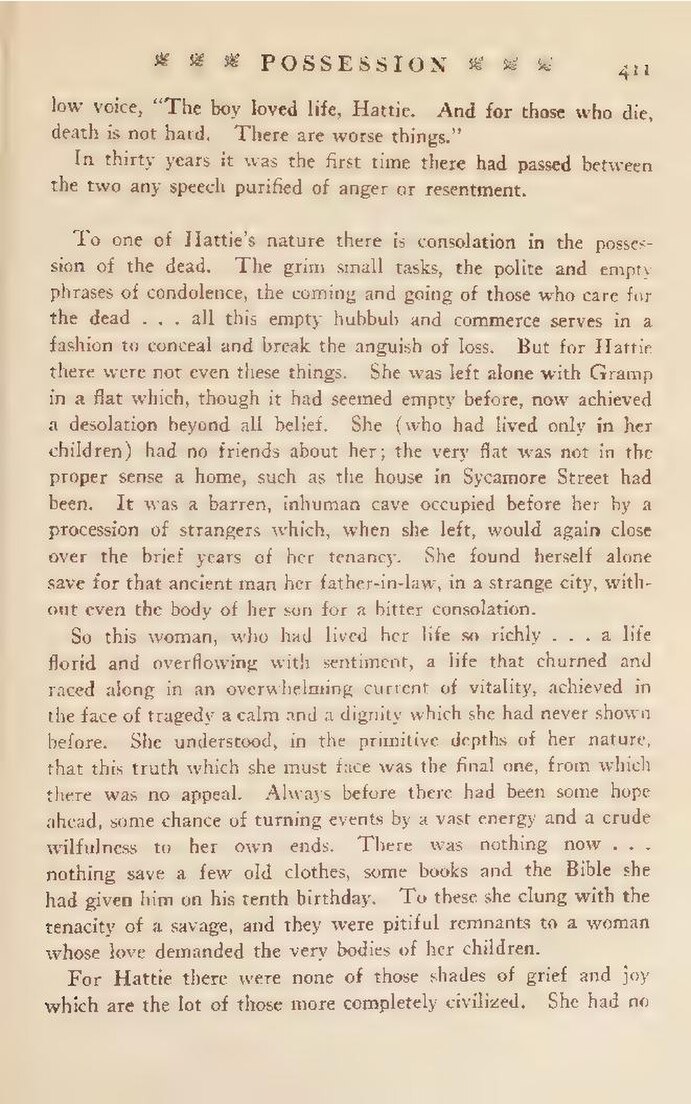low voice, "The boy loved life, Hattie. And for those who die, death is not hard. There are worse things."
In thirty years it was the first time there had passed between the two any speech purified of anger or resentment.
To one of Hattie's nature there is consolation in the possession of the dead. The grim small tasks, the polite and empty phrases of condolence, the coming and going of those who care for the dead . . . all this empty hubbub and commerce serves in a fashion to conceal and break the anguish of loss. But for Hattie there were not even these things. She was left alone with Gramp in a flat which, though it had seemed empty before, now achieved a desolation beyond all belief. She (who had lived only in her children) had no friends about her; the very flat was not in the proper sense a home, such as the house in Sycamore Street had been. It was a barren, inhuman cave occupied before her by a procession of strangers which, when she left, would again close over the brief years of her tenancy. She found herself alone save for that ancient man her father-in-law, in a strange city, without even the body of her son for a bitter consolation.
So this woman, who had lived her life so richly . . . a life florid and overflowing with sentiment, a life that churned and raced along in an overwhelming current of vitality, achieved in the face of tragedy a calm and a dignity which she had never shown before. She understood, in the primitive depths of her nature, that this truth which she must face was the final one, from which there was no appeal. Always before there had been some hope ahead, some chance of turning events by a vast energy and a crude wilfulness to her own ends. There was nothing now . . . nothing save a few old clothes, some books and the Bible she had given him on his tenth birthday. To these she clung with the tenacity of a savage, and they were pitiful remnants to a woman whose love demanded the very bodies of her children.
For Hattie there were none of those shades of grief and joy which are the lot of those more completely civilized. She had no
